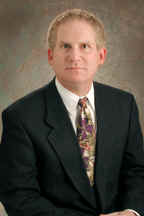|
5:00 p.m., April 16, 2003--The new breed of conservative anti-tax Republicans who gained control of Congress in the mid-1990s had on their agenda nothing short of an American fiscal revolution, Sheldon D. Pollack, an associate professor in UD’s Alfred Lerner College of Business and Economics, writes in his new book “Refinancing America: The Republican Anti-Tax Agenda.”
 |
| Sheldon D. Pollack, associate professor of accounting and management information systems: “They [Republicans] envisioned a compete refinancing of America.” |
“They envisioned a complete refinancing of the American state,” Pollack writes, one that would leave the affluent with a significantly greater share of their wealth and the federal government with significantly less revenue. The unspoken goal of the latter, he writes, was to end the modern social welfare state.
However, despite the fact that Republicans still control the House of Representatives and now hold the White House, Pollack predicts the anti-tax revolution will stall in a partisan deadlock throughout the administration of President George W. Bush.
He adds the fight against terrorism and the war in Iraq, although not unbearable drains on the national economy, will make it increasingly difficult to argue for major tax cuts.
The book, which builds on Pollack’s 1996 work “The Failure of U.S. Tax Policy: Revenue and Politics,” traces the roots of Republican anti-tax sentiment to the Civil War, when an income tax was levied to fund the costly conflagration, through 20th century antagonism to the welfare state created by Democratic Party programs such as Franklin D. Roosevelt’s New Deal and Lyndon Johnson’s Great Society.
While Republicans have long been leery of the federal income tax, Pollack notes a sea change from those who came to power under Ronald Reagan in 1981 and those who wrested control of Congress in 1995 and who maintain power under Bush today.
“While Reagan and his supply-side cohorts stressed reducing income tax rates, they never questioned the legitimacy of the federal income tax,” he writes. “That is where the Republican Party of the 1990s departed from tradition, for the new party leadership not only called for reducing taxes but openly questioned the role of federal taxation in a free society.”
The change in attitudes can be attributed in part to a drastic shift in the power base of the conservative wing of the Republican Party from New England to the South and Southwest, Pollack says.
“Good old-fashioned Republican conservatism,” as represented by the New Englanders, historically called for a check on taxes and neatly balanced budgets, he says.
The modern conservatives are decidedly anti-tax but not necessarily interested in balanced budgets, as witnessed by continuing calls for tax cuts of up to $750 billion in the face of ballooning deficits.
Pollack says a Machiavellian school of thought contends that the conservatives actually want a large deficit to put pressure on spending and so make it difficult for Democrats to add social spending programs.
“In the end,” Pollack writes, “the anti-tax ideology of the Republican Party of the 1990s undermined and overwhelmed the fiscal conservatism and common sense that used to be a central tenet of the GOP.”
He writes that he believes anti-tax movement may have reached its zenith in May 2001, when the Republicans passed a major tax cut, and in recent months he sees waning popular sentiment for reduced taxes as a result of the growing federal budget deficits. Plus, the Republicans now hold only a narrow majority over the Democrats in the Senate.
“Notwithstanding all the rhetoric and bluster of anti-tax Republicans,” Pollack writes, “the income tax will not be repealed anytime soon.” Instead, it will persist and continue to serve as the primary source of revenue for the federal government.
On the down side, bitter political battles over the tax code will likely persist, as well.
Pollack writes that deadlock over taxes is probably preferable to the highly partisan battles that have been seen over the course of the last two decades, when one party changes the tax code to suit its purposes and then the other reacts when it regains power. The result, he writes, has been “erratic, incoherent and unprincipled tax policy.”
Ominously, he concludes, “There is no silver lining here and no end in sight.”
Pollack brings a unique perspective to the issue, having been trained as a political scientist and having worked as a tax lawyer for a prominent Philadelphia firm. In addition to his two books, he is the author of numerous articles for the professional journals Tax Notes and the Tax Law Review, as well as political journals such as The New Republic and The American Progressive.
“Refinancing America” is published by the State University of New York Press.
Article by Neil Thomas
Photo by Kathy Flickinger
|

